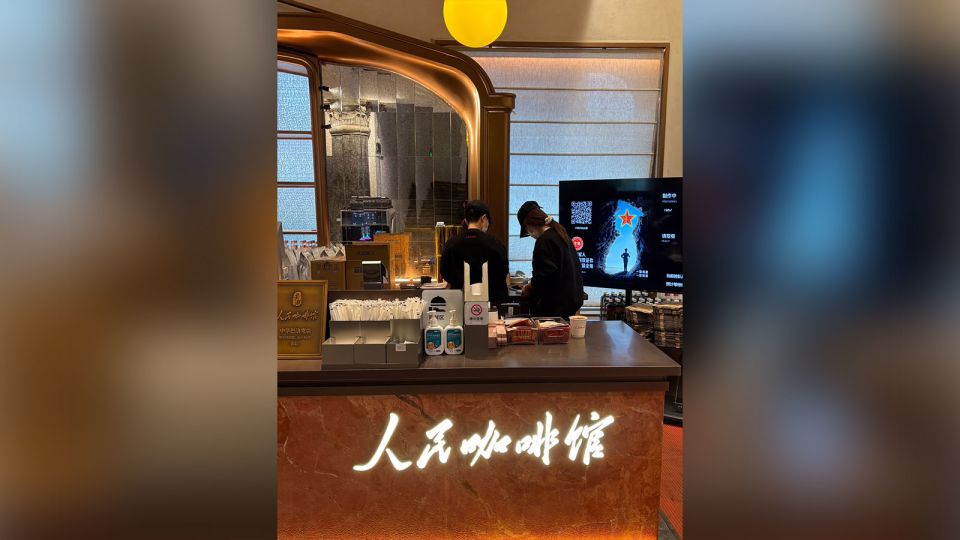A Chinese coffee chain has apologized and changed its name after state media roasted it for misusing a word revered by the nation’s communist government.
People’s Cafe decorates most of its branches in bright red, often with a star on their storefront, evoking a very Chinese Communist Party aesthetic – as well as using a typeface inspired by the calligraphy of China’s first communist leader, Mao Zedong.
The company issued an apology Saturday, days after state media singled it out for riding on the “gimmick economy.”
As in many officially communist states, the term “people” – or “renmin,” in Mandarin – is deployed liberally but earnestly by the Chinese government.
The country’s official name is the People’s Republic of China, with many authoritative institutions also deploying the prefix, including its military, the People’s Liberation Army; its currency, the renminbi; and even the Communist Party mouthpiece that criticized the cafe.
The term “carries a distinct public character and profound political connotations, embodying specific social sentiments and public interests,” the People’s Daily wrote in an opinion article Thursday, adding that the term “must not be profaned, nor can it be misused.”
“Marketing can be creative, but it must not cross the bottom line,” it wrote.
Pictures circulated on Chinese social media show the cafe’s patrons being served drinks sprinkled with “China” on the top. The slogan “Tell China’s story with coffee” adorned the walls and facades of some branches.
On Saturday, Yao Chao People’s Cafe, which has about 30 outlets across the country, according to state media, issued an apology on social media.
“We extend our sincerest apologies to every consumer who has been hurt,” it said, adding that after “deep reflection” it had taken “proactive steps” to rectify the situation.
The chain said it would add “Yao Chao” back to the name of all shops in mainland China to reflect its legally registered moniker, although branches overseas will remain People’s Cafe, as well as in the semi-autonomous cities of Hong Kong and Macao.
The chain also faced a chiding on social media. “Not a very smart move,” one user wrote on X-like platform Weibo.
Another wrote: “Isn’t that in breach of the law? Shouldn’t it be suspended and reorganized?”
The chain’s rapid expansion in recent years – alongside bigger local coffee makers such as Luckin Coffee – highlights rising demand for a brew in the nation of 1.4 billion people, traditionally dominated by tea.
The market has also become increasingly cut-throat with cheaper options from local makers squeezing foreign chains such as Starbucks, once a symbol of status and Western influence in a more affluent China.
Last week, the Seattle-founded coffee giant announced that it would sell the controlling stake of its more than 8,000 outlets in China to a local investment firm.
For more CNN news and newsletters create an account at CNN.com

